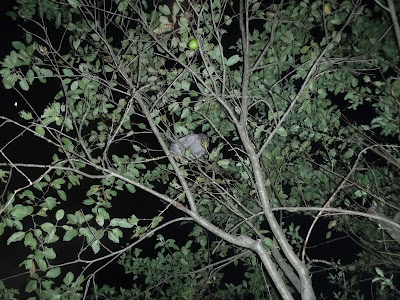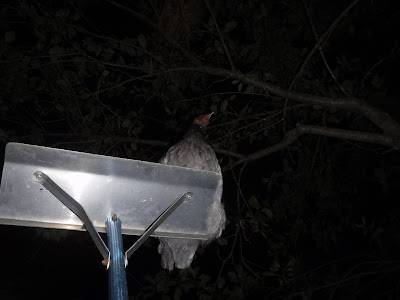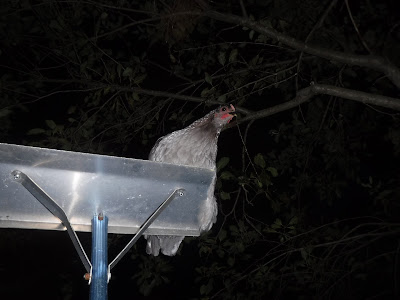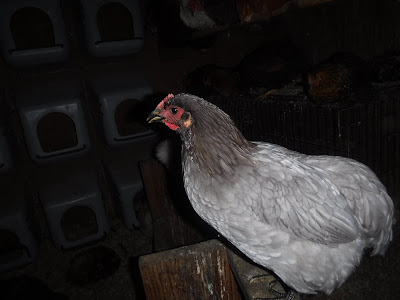 |
Ducks on the homestead yay or nay?
|
Quite a few years ago we added ducks to the farm. This wasn't really planned out, like many people we saw the adorable ducklings in the farm store and some came home with us that very day. We already had experience with chickens, how different could it be??
It's different, quite different!
 |
We're not all like each other.
|
First we'll deal with troubleshooting fresh, clean water.
Ducks have their own unique preferences and needs and well...our ducks are messy! I know some people claim ducks are not messy but seriously we've had them for 7 years, our ducks ARE messy. They love water, they love mud, they love digging and dabbling in the dirt and mud to find treasures such as worms. They swim, they splash and they turn all water brown very, very quickly! If you have both chickens and ducks the chickens will enjoy nice clean, fresh water. The ducks will not respect that if they share waterers with chickens.
In the case of water bowls the ducks will enjoy dipping their bill right in, swishing around and getting a good drink. Nothing wrong with this, ducks NEED to be able to dunk their whole bill in the water. Bit it doesn't matter how many bowls you fill with water the ducks will find ALL and within minutes all those bowls of fresh, clean water will be brown. Result brown not very nice water, in minutes.


Next water variation is a gravity waterer. There are many types but they all work about the same, you fill the large tank and water drops down into the tray without over spilling the lip of the tray. A large waterer like this could last for days between filling...if you have only chickens. The ducks will find work arounds to make all the water spill out. On the rare days that they don't spill the entire tank of water (possibly in an attempt to have a nice mud puddle on the ground), they will still dirty the water quite quickly. Dirt from their bills gets into the water tray as they drink and builds up making all water that goes into he tray dirty. Result- brown and/or completely spilled water in minutes.
 |
Ah, a nice drink for me.
|
 |
This was fresh, clean water an hour ago.
|
Then there is "the watering hole" This is what I call the kiddie pools we have for the ducks to swim in and drink from. Ducks love to swim, paddle and drink from their pools. Most farm ducks are land ducks who don't need to swim to exist but they sure do enjoy it just as their wild counterparts do. I think having a watering hole of some sort leads to a better quality of life for ducks. This gets messy too, yes pretty much right away. As soon as I let the birds out in the morning the ducks head straight to their pools. Result- messy but this is FOR the ducks not the chickens (though they hang out there too sometimes). On a related note these toddler pools and sandboxes make great duck pools once your kids are too big for them. They last and last. The turtle pool is over 20 years old now, we bought it when our oldest was very young.

So where is the troubleshooting here? How to get clean water for the chickens. The solution we use is a nipple waterer, a big one. This one holds 12 gallons of water, when I fill it I add a little apple cider vinegar and the water stays clean. The chickens can access this water and ducks can't! Result- CLEAN water for chickens!
SOLUTION- many types of water systems available and a nipple watering system for the chickens. Next another water related issue, troubleshooting frozen water.
Problem, water in winter!
This is only a problem for those who live where the weather gets below freezing, we most definitely do. Ducks need water, chickens need water too but ducks need MORE water. They depend on it to help them eat their food. As soon as the weather freezes everything gets harder on the homestead. The hoses freeze, the water in bowls, waterers and pools freeze. I know some have frost free hydrants outdoors, we do not. Sooooo ... I'm lugging water before work, after work and later in the day. To prevent the water freezing, which would lead to lugging even more water from the house, there are solutions.
The ducks actually quite like the snow, unlike chickens. The ducks also don't seem to be bothered by the cold weather except or the most extreme below 0 F days. The snow to ramble about in seems to make up for the lack of a pool in winter. We keep the pools open for them as long as we can but eventually the hose freezes up and the pools freeze to multi inch depth ice an d it's no longer sustainable. We do not heat a pool for them. They enjoy the snow, and take a swim in their largest water bowls and that's good enough.
 |
We like the snow.
|
 |
We like making messes in the snow.
|
 |
Not so think ice
|
 |
a warm up, the hose is working I guess I can treat the ducks to their pools.
|
 |
Our ducks don't mind winter.
|
So the pool is replaced by the snow, the large water bowl and well, sometimes if the hose has defrosted being a super amazing farmer and getting the ice out of the pools and filling them. This is not easy because the ice is heavy and slippery but it can be done in the early or late winter when temps aren't quite so bad by using shovels and levers of a sort.
Problem water bowls and containers in winter.
For a large part of winter water will freeze very quickly once it's put out for the animals. To solve this problem a variety of heaters are used. We use these in the covered run NOT in the coop itself out of an abundance of caution.
I don't have good pictures on this device but these are exactly what we use in winter:
 |
Heated bowl larger
|
 |
Under waterer heater
|
 |
Self contained heated waterer (this one is a spare it's a bit hard to fill)
|
 |
Submersible tank heater, this goes in the large nipple waterer
|
 |
| Heated bowl bit smaller (spare if larger one goes out). |
|
|
|
Solutions- heated bowls, water container heaters, ducks like snow and which makes up for frozen pools, occasional brute strength for ice removal.
There, we've tackled most water issues when it comes to ducks or ducks living with chickens. Now the other potential issues and some solutions.
Problem Wet, Messy bedding!
Our ducks live in the same coop (really a small barn) as our chickens. Our ducks are messy! Our ducks get everything wet. Too much moisture in the coop is not ideal, especially in winter. Our solution is cage in coop or bedtime for ducks. Everyone uses all of the coop whenever they want by day but at night the ducks go to bed into a set of cages within the coop. These cages attached together result in an area of around 3 foot by 6 foot which is plenty big for them to sleep in. The bedding in the coop cages can be changed very frequently without the need to clean the whole coop. the cages are covered with trays on top to catch chickens droppings as their roosts are above the cages. Thus our solution is separate sleeping area and frequent cleaning/shavings change. This also keeps a segment of duck bedding separate from chicken bedding and while chicken manure/ bedding is "hot" and can't be added to gardens right away, ducks manure/ bedding can go straight into the garden if needed. It's not hot.
Solution- separate housing, frequent cleaning.
The chickens seem to want to model the ducks newly clean cages;
 |
Wet, dirty duck bedding
|
 |
Using cages in coop keeps ducks mess contained fresh shavings can be added often.
|
 |
| This can be changed as often as needed without needing to clean the whole coop. The ducks happily sleep in these two attached dog kennel cages each night. | | |
|
|
The next troubleshooting issue is more common in summer than winter and that is....
Problem- Find the hidden eggs!
Our ducks generally do not use the nest boxes that our chickens use.
While we do have one duck who will sometimes use the ground level nest boxes, generally the ducks like to hide their eggs. We have a VERY large fenced farmyard so this egg hunt can be very time consuming! The problem with not finding the eggs is that the ducks will sometimes try to build up nests to hatch, then one night a duck or two won't go to bed, which is not very safe at this wild homestead in the woods. The predators are active at night. I really don't like wandering around with a strong flashlight at 9:00pm searching for the duck who is hiding a nest so prevention is the best cure.
 |
After some searching I found these eggs in a new nest.
|
I can follow the ducks in the morning to see where they head, this doesn't work during my school (work) year though. I can leave the ducks shut up a little later in hopes they will lay their eggs in their sleeping cage but they seem to be able to "hold" it until thew get out. I can keep the b rush trimmed down low so the ducks can't hide their nests as easily but they are incredibly smart and resourceful! I can find a nest but then pretend I didn't, sneaking back to fetch the eggs later when the duck isn't looking. This is a good solution because once a duck knows I have found their nest they will hide a new nest.
 |
Better check under here this was a previous nest hiding area.
|
 |
Aha they have decided to revist this old nest area.
|
 |
Good thing I found this one today!
|
 |
Too many hidden eggs, the brush has grown a lot. Time for my trusty brush whacker!
|
I do have a bedtime routine for the ducks which often even broody ducks can't resist. While the chickens mainly go to the coop and roost for the night at dusk the ducks do not. When I go out to shut up the coop for the night I call out "ducks ducks, ducks" and then the ducks come running. They come running because they know that once in their cages in coop I will give them small bowls with a few dried soldier fly grubs. All but the very most broody ducks will come running for their bedtime snack and sometimes I even catch a broody by going back out and calling again to find the missing duck, They almost can't resist and will call back with quack, quack, quack noises so I can find the missing duck 95% of the time. For the 5% well 3 or 4 times over almost 7 years a duck has slept outdoors for the night. The next morning I can find them by watching carefully as they will come out to eat and drink and get that first swim in the pool.
 |
Find the hidden ducks, there are two here. They may be thinking this is a good new nest area.
|
 |
One under the log.
|
 |
Another under a different part of the log.
|
Solutions to the great egg hunt? A bit of everything, learn their habits, keep the grass and brush trimmed, go back to old nest areas after some time has passed, they may be using them again, watch carefully the next morning if a duck was not found the night before, have a routine at bedtime.
Our duck journey started with 4 adorable Khaki Campbell ducklings from Tractor Supply. We later added the following ducklings- a Black Swedish and two Rouens. Finally our duck family was complete with the adoption of three adult ducks, a Cayuga, a Khaki Campbell and a Mixed breed. One of our original ducks passed at around 3 years old. The rest remain happy and healthy at now ages 5-ish -7. Ducks can be a great addition to the homestead, they provide extra large eggs, their manure is great for gardens and can be used right away, their dirty pool water makes a good fertilizer for plants, kids enjoy them and they are fun for all ages to watch, they do have some funny antics. Ducks can live happily with chickens too provided you take a few extra things into consideration especially ... SPILLED and MUDDY WATER!



















































